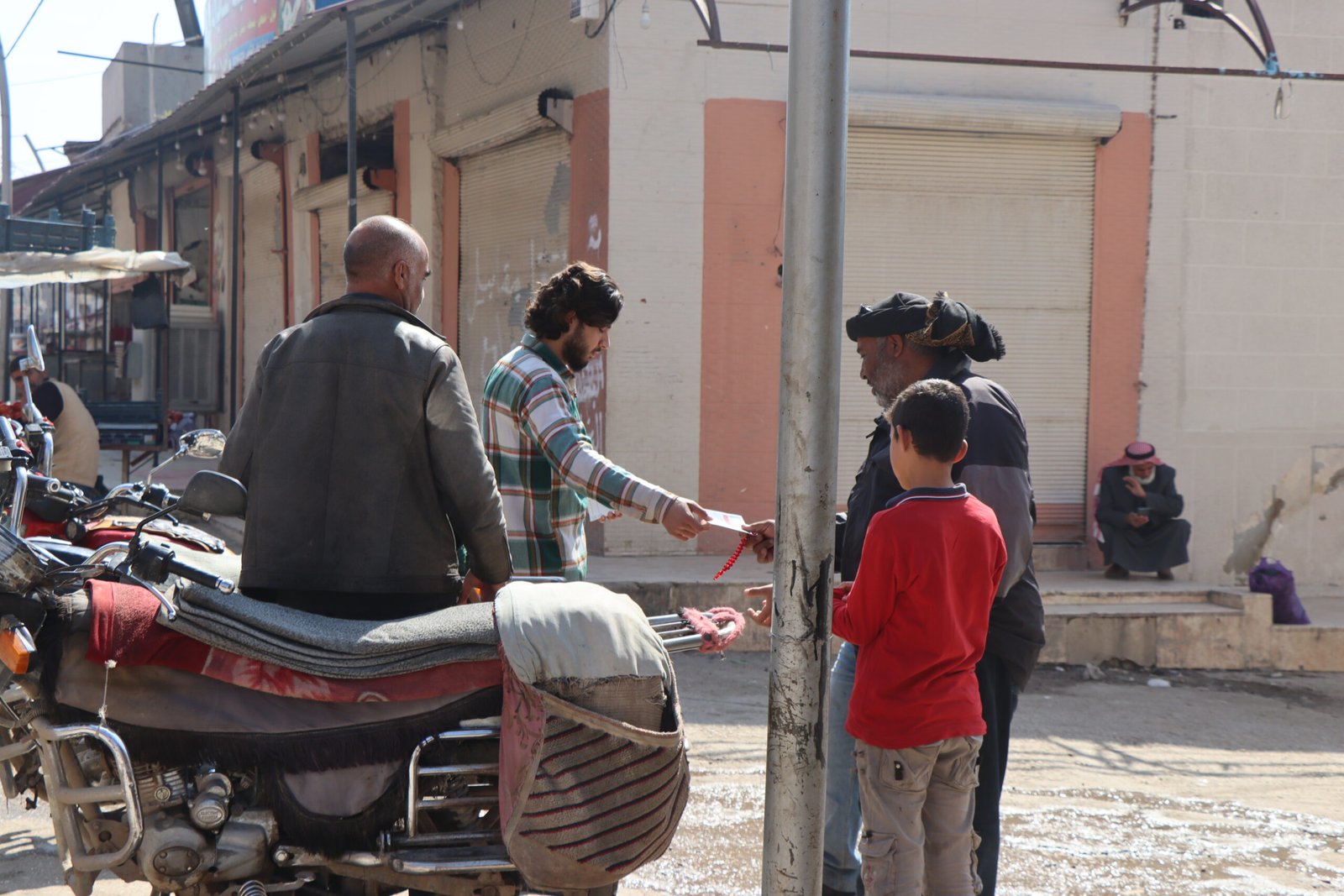
Northern Syria – In a crime that shook opposition-controlled areas of Syria and left residents in shock, the Syrian man in his thirties, Saad K., killed his brother, his wife, and their five children, and injured others.
Sources from Aleppo countryside report that the assailant stormed his brother’s house in the town of Waqf in northern Syria, shooting most of the family members. He then attacked his niece with a knife and fled the area, leaving behind a mystery about the motive behind the crime, which occurred less than two months ago.
However, the shock did not last long after the arrest of the assailant, as local security authorities revealed that he was a drug addict. His brother, a leader in Syrian opposition factions, had previously arrested him multiple times and imprisoned him due to his addiction. Upon release from prison, he sought revenge in his own way.
According to sources, the assailant admitted to using “H-Boss” drugs, which have recently become popular in northwestern Syria, along with many other substances that are devastating to a large percentage of the youth in the area, exhausted by war and economic collapse, while the majority of citizens struggle to make ends meet.
Syria – Aleppo Countryside – Quantities of drugs seized in northern Syria Quantities of drugs seized in northern Aleppo countryside, Syria (Al Jazeera) Fashion of the time Documented statistics on drug use in northern Syria raise concerns among local and security stakeholders. The Syrian Center for Drug Control has revealed an increasing rate of drug use among youth aged 16 to 30 in opposition-controlled areas of northwestern Syria.
The Center confirmed that the rate of drug use in northern rural Aleppo is higher compared to other areas, including Syrian refugee camps in the region, warning of escalating numbers of drug users due to the absence of awareness, care, and education.
The Center’s founder, Hassan Jneid, emphasizes that “H-Boss” or “Crystal Meth” is one of the most dangerous and widespread drugs in northwestern Syria, explaining that users become addicted from the first use in 90% of cases, as it directly targets the brain and can lead to schizophrenia.
Speaking to Al Jazeera, Jneid stated that drugs are spreading fearfully in northern Syria, including pills like “Codeine, Tramadol, and Captagon,” as well as marijuana, which are widely available and inexpensive.
The spokesperson explains that some students in schools and universities are turning to drugs as part of what is called the “fashion of the time,” or as an escape from severe psychological conditions that have led to acute depression, noting that most users are teenagers seeking happiness as promised by bad companions.
Where do drugs come from? Despite talk of rare drug manufacturing facilities in northwestern Syria, the head of the Anti-Drug Department in rural Aleppo, Ahmed Othman, confirmed that most quantities of drugs come from areas controlled by the Syrian government, based on a report from the International Drug Control Agency revealing that most drugs, especially marijuana, enter Syria from Lebanon.
Speaking to Al Jazeera, Othman said that “H-Boss” and Captagon pills come from Iran to areas controlled by the Syrian government as raw materials, manufactured in its affiliated labs, before being smuggled into northern Syria.
The security official explained that traffickers and dealers are dealt with strictly under the law, while drug users are detained for a period to help them recover from the effects of addiction due to the absence of specialized addiction treatment centers.
Regarding the number of security seizures and arrests in rural Aleppo during the past year, Othman mentioned recording 774 seizures, including the arrest of 1195 individuals on charges of drug trafficking, trade, and use of all kinds.
Rehabilitation On the preventive and treatment side, health and community activities in northwestern Syria work to raise awareness among residents and provide medical and psychological treatments to survivors of addiction.
Secretary of the Aleppo Doctors’ Union, Dr. Omar Farouh, explains the treatment of drug addicts according to precise scientific medical protocols and WHO standards, with addicts evaluated by addiction specialists who develop necessary treatment plans for each case.
Speaking to Al Jazeera, Farouh adds that treatment is provided at a center or at the patient’s home, followed by a stage of psychological and social support through specialized counselors, ultimately leading to complete recovery.
As for the Syrian Center for Drug Control, according to its founder Hassan Jneid, it conducts digital awareness programs targeting Syrian youth through the dissemination of informational leaflets and brochures about the dangers and effects of drugs on families and communities.
Jneid stated that since the beginning of 2023, the Center has initiated a series of awareness programs with specialists and doctors, including in camps, schools, and universities, in addition to rehabilitating drug users and welcoming them and their families into empowerment, training, and rehabilitation programs offered by the Center.
- Statement
- 6 July، 2024
The SCDC’s vision is to create a healthy, productive and drug-free society, and aspires to build an immune and cohesive community that has an important role in confronting and overcoming the addiction problem.
Contact Information
- +90 531 408 32 25
- info@scdc-sy.org
Our areas

Copyright © 2024 | Powered by SCDC
